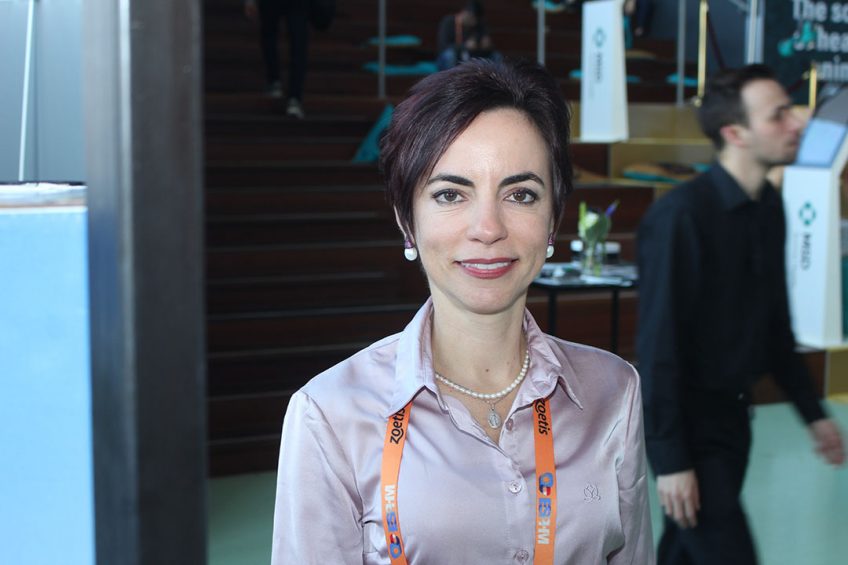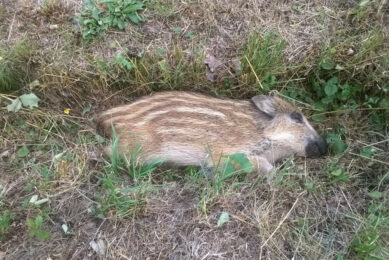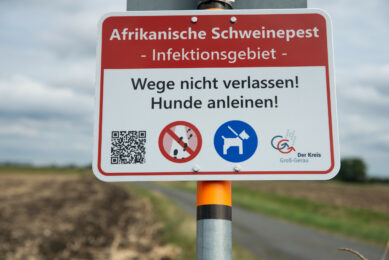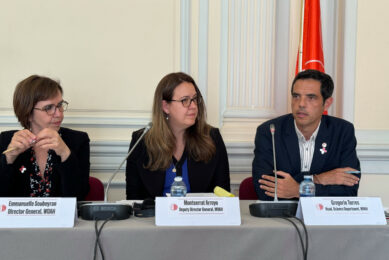Interview Fernanda Almeida: IPVS president for 2 more years

Dr Fernanda Almeida was an undergraduate student when the International Pig Veterinary Society (IPVS) congress was held in Brazil in 1988. 3 decades later, she is the proud IPVS president who was preparing for the return of the Congress to Brazil in Rio de Janeiro. Covid-19, however, means that she will be president for 2 more years.
The 1988 edition of the International Pig Veterinary Society (IPVS) Congress in Rio de Janeiro for now remains the only edition to be held in Brazil – for at least another 2 years. Like virtually all other international events, this year’s IPVS Congress in Rio de Janeiro was cancelled because of Covid-19. In fact, it was cancelled twice, as the original date in June was pushed back to November 2020 – to no avail.
President of the 2020 IPVS Congress was Dr Fernanda Almeida – and she will remain in charge to plan the entire event for June 2022 instead. Dr Almeida reflects on the reasons and effects of the Congress postponement, as well as veterinary and pork industry developments in Brazil.
When did you realise that IPVS would not be able to be held in June 2020? How fast was the decision made and what was involved?
“It was in March that we decided to postpone it to November. We thought that things might have been cleared up by then. International travel was a big issue and our main sponsors were concerned, even if international travel was allowed, about sending representatives. We had a virtual meeting in June with our board members and sponsors and we all decided it was best to postpone to 2022, as the same conditions due to Covid-19 may be present in 2021. It was a tough decision, very tough, but it was a quick decision aiming for the safety of all involved in our event (delegates, sponsors and local organising committee). The IPVS edition in Leipzig, Germany, that would have been held in 2022 will also be postponed two years.”
Will you continue as president to 2022?
“Yes. Everyone supported that, and I will gain more experience. We are in standby mode now, and we still have housekeeping items to finish up the cancellation of IPVS 2020. In November, we will have a simple online event when we will announce a few details for the Congress in 2022, and we will also publish abstracts and manuscripts of all those who would have presented at the 2020 Congress.”
How did you come to be in the swine industry?
“I graduated in veterinary medicine in 1989, and when I started the course my focus was on pets. But I realised I would not be a good pet vet as a lot of emotion would be involved. I started to read about pigs and their importance as a food source and during the second-last year of my undergraduate degree, I started working with them. It did not take much to fall in love with this species.”
In November we will publish abstracts and manuscripts of all those who would have presented at the 2020 Congress
After 32 years, are pigs are still fascinating for you?
“Yes, definitely. The industry has changed so much and that keeps it interesting. Of course, there has been a large amount of change with diseases and animal welfare, especially around the year 2000, when the breeding companies introduced the hyperprolific sows. That has meant a lot of challenges for producers and a lot of research questions to answer. That still continues and is currently the main focus of my research area.”
Do you feel the outlook is good for Brazil’s swine business in the next few years?
“Definitely. We have an outstanding position in the world and we are free from many diseases. This is very important for export and to grow production.”
In your view, what role does the current Bolsonaro administration play in Brazil’s swine industry?
“Overall support for the industry is good. Our minister of agriculture, who will be in office at least 3 more years, is very open to receive people from agriculture and she is keen to help. Roads are being built to provide better access to farms, which is very important. I would like to see funding also for producers to be able to renovate their facilities. While it’s true that funding for research has been cut, we are making collaborations with the industry. These collaborations are important but, depending on the type of research, federal funding is necessary to run specific research trials.”
In recent years, several outbreaks of Classical Swine Fever (CSF) have occurred in Brazil. What caused them and how have these outbreaks been dealt with?
“They happened in the northeast of the country where keeping pigs for family use is common. The pigs have been euthanised and the family can’t have another pig for a certain length of time. Even though the family is compensated for the loss of the pig, it is hard on them as the animal seems healthy and the family doesn’t want to lose its source of pork and the income from having some pigs.”
Apart from CSF, what are the current major current swine health challenges in Brazil at the moment?
“Salmonella is a problem, as well as respiratory diseases, like enzootic pneumonia, and Senecavirus can also be present on some farms.”
What does Brazil do to keep African Swine Fever out of the country? Is the country doing enough from your perspective to protect against entry of this disease?
“In the state of São Paolo, there is an island where any imported animals are quarantined and tested by the ministry of agriculture. Added to this, there is very good vigilance at land border crossings, ports and airports. At the airports, there are dog teams and also many signs to raise awareness. There was an outbreak of Porcine Reproductive and Respiratory Syndrome (PRRS) in Uruguay late in 2019, and it has not crossed into Brazil. I think the government is doing what needs to be done to protect the swine industry here, and it is working really well.”
Brazil has an outstanding position in the world and we are free from many diseases
Recently, Brazil also began moving towards banning 3 growth-promoting antibiotics used in pig production. How is that transition going and where does the country stand currently with regard to reduced antibiotic use?
“The transition in any country must include changes in management, and that is being done here. As is the case elsewhere, the transition is being done in steps so that producers have time to adapt. But there are some producers, as there are in any country, who are resistant to the changes, and the introduction of risk makes people afraid, which is normal. But this topic has been raised at so many global meetings, and the producers and everyone else in our industry here knows that we must make these changes. There will be more growth-promoting antibiotics banned in future.”
Will the world be able to feed 9.2 billion people this year, in 2020?
“I think we are working hard to achieve the objective of feeding everyone. Genetics is doing its job and the females are producing higher numbers of piglets, but management practices must ensure they reach market weight. We just mentioned reduced use of antibiotics; without them, we need to use other tools to prevent losses. In addition, my other main concern is quality. We should work hard to produce very high-quality pork. To do so, feedstuffs and water must be good quality too, and we need good vaccines and technology to facilitate better management. It all must be under control to make it possible.”
With the increased interest in veganism, do you think pork has a bright future?
“There are nutrients in meat that are essential for good health and not everyone in the world can go to a pharmacy and buy supplemental minerals and vitamins. Moreover, the deficiency of certain essential microelements that are present in pork may have detrimental effects on individuals’ health. We know that, besides having a good taste, pork is a healthy meat. Looking at the environment perspective, the way manure is now being managed, pig production will become more environmentally friendly.”
What are your future goals?
“I have always had the goal to train students to become competent veterinarians and researchers. I have undergraduate and graduate students. I want them to be outstanding professionals and outstanding as people. I will also work to have more funding for research to help swine producers and help society as well.”











